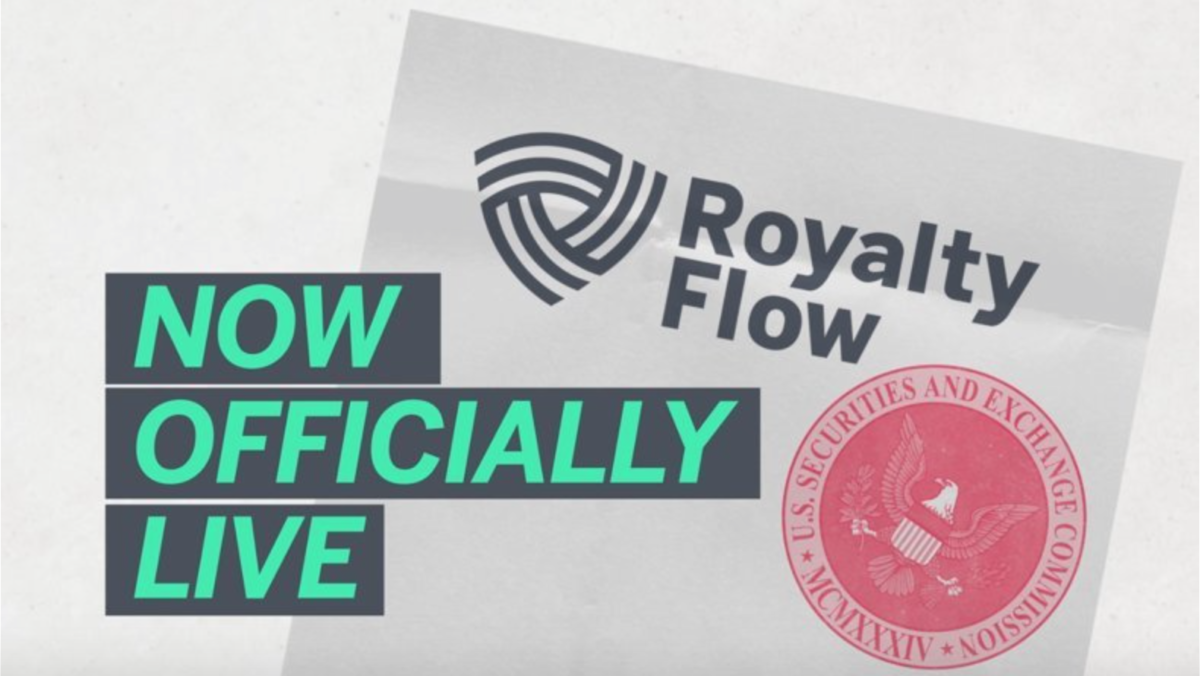by Fred Fuld III
Have you ever thought about owning the rights to music from your favorite band? Or maybe you would like to own the residuals from a movie you like. Maybe even investing in trademarks.
Recently, investors had the opportunity to own the right to royalties from Listerine. Yes, the mouthwash you use to gargle with. Yup, every time someone uses Listerine and spits it out, the investor would make money.
This investment was available through an organization called the Royalty Exchange. Investors could make an offer on what they would pay for receiving a flat rate royalty on worldwide Listerine sales, for as long as Listerine is sold. Listerine has been providing royalties for 142 years.
Royalties are paid monthly and Listerine has paid $12,507 during the last twelve months.
What other things can you invest in? The music from the film Shrek, royalties from standardized tests, Apple (AAPL) alert tone royalties, and tracks of music from Enrique Iglesias and Rihanna.
Previous transactions that the company handled include royalties from Coldplay and Beyonce, Jerry Garcia’s Cherry Garcia Trademark Royalties, and Naked & Afraid TV placements.
I want to point out that these investments do have some risk, like any investments. Second, I am not recommending any of these investments; I’m only mentioning them for you to do your own due diligence. Third, I have no connection to the Royalty Exchange whatsoever.
So what is the Royalty Exchange?
Royalty Exchange is an online marketplace that facilitates the buying and selling of royalties and intellectual property rights. It allows creators, artists, and copyright holders to monetize their intellectual property by selling a portion of their future royalties to investors. Here’s a general profile of Royalty Exchange:
Business Model and Purpose:
- Royalty Exchange serves as a platform connecting creators of intellectual property (such as musicians, songwriters, authors, and other content creators) with investors interested in purchasing a share of their future royalties.
- The platform allows creators to access immediate capital by selling a portion of their royalty income, often in exchange for a lump sum payment.
Types of Intellectual Property:
- Royalty Exchange deals with a wide range of intellectual property, including music royalties, book royalties, film and TV show royalties, patent royalties, and more.
- Music royalties are one of the most prominent categories on the platform. This includes royalties from songwriting, publishing, performance, and mechanical rights.
How It Works:
- Creators looking for funding list their intellectual property rights on the Royalty Exchange platform.
- Investors browse the available opportunities and can place bids on the rights they’re interested in purchasing.
- A competitive bidding process takes place, and the highest bidder wins the right to receive a portion of the future royalties.
- The creator receives an upfront payment, and the investor receives a share of the royalties generated by the intellectual property over time.
Benefits:
- Creators can access immediate funding without taking on debt or selling ownership of their intellectual property outright.
- Investors can diversify their portfolios by investing in various types of intellectual property.
- The platform aims to create a win-win situation by allowing creators to unlock value from their royalties while providing investors with potential long-term income streams.
Marketplace Transparency:
- Royalty Exchange aims to provide transparency by providing data and analytics related to the performance of the intellectual property being offered for sale.
The advantage of royalty trusts include the fact that they are uncorrelated assets, they have the potential to provide high yields, and offer passive income.
One thing you should be aware of is the time frame of the investment. The company provides these definitions:
- Term Based: Investor collects royalty income for a fixed period of time (typically 10 years). Royalty income then reverts to the original seller after the end of the term.
- Life of Rights: Investor collects royalty income for the length of the underlying copyright (Lifetime of the creator PLUS 70 years).
A Publicly Traded Entertainment Royalty Trust
If the Royalty Exchange investments are too rich for your blood, you could also consider Mills Music Trust (MMTRS), which is a publicly traded stock that trades Over-the-Counter. It receives income from royalties from the music catalog of EMI Mills Music Inc.
The catalogue is estimated to be composed of over 12,000 music titles, of which approximately 1,430 have produced royalty income in recent years. Some of the top songs include:
- Little Drummer Boy
- Sleigh Ride
- Star Dust
- It Don’t Mean A Thing
- Mood Indigo
- I’ve Got the World On A String
- Ain’t Misbehavin’
- Lovesick Blues
- Hold Me, Thrill Me, Kiss Me
- Stormy Weather
- Red Roses for a Blue Lady
This New York based trust was founded in 1964. It pays a dividend of 8.3%, and has very low trading volume, with a wide spread between the bid and ask prices. At one time, Paul McCartney was a major shareholder of the company.
Because it is a trust, it avoids the double taxation of corporations. There may be personal tax benefits to the investor; talk to your accountant about it.
Buying royalties is a quick way of getting into show business, but it carries a lot of risk.
Disclosure: Author owns MMTRS. Author and this site have no connection to Royalty Exchange, has not done due diligence on the company, and are not recommending the company or its royalty investments. No investments are expressed or implied. All investors should do their own due diligence.


